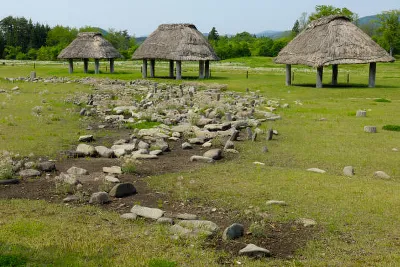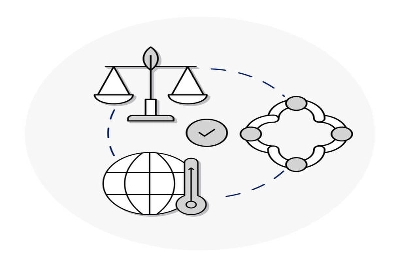Course Overview
This course provides comprehensive training in identifying, assessing, and protecting cultural heritage sites in areas undergoing resource extraction and development. Participants will learn to balance economic development with cultural preservation, applying international standards and best practices for heritage impact assessments, community engagement, and sustainable management of cultural resources. The course addresses the unique challenges faced in resource-rich regions where mining, energy, and infrastructure projects threaten archaeological sites, sacred places, and traditional cultural landscapes.
Duration
5 Days
Target Audience
-
Environmental and Social Impact Assessment Practitioners
-
Mining and Energy Company CSR Managers
-
Government Heritage and Culture Officers
-
NGO Staff working on indigenous rights and conservation
-
Archaeological and Heritage Consultants
-
Community Liaison Officers in extractive industries
-
Project Developers and Planners
Personal Impact
-
Develop expertise in cultural heritage impact assessment methodologies
-
Acquire skills in stakeholder engagement and free, prior, and informed consent (FPIC) processes
-
Learn international standards for cultural heritage protection (IFC PS8, UNESCO conventions)
-
Enhance ability to develop and implement Cultural Heritage Management Plans
-
Improve conflict resolution skills related to cultural heritage issues
Organizational Impact
-
Reduce project risks and delays related to cultural heritage conflicts
-
Enhance corporate social responsibility and license to operate
-
Improve compliance with national and international heritage regulations
-
Strengthen community relations and stakeholder engagement
-
Develop sustainable approaches to cultural heritage management
Course Outline
Course Objectives
By the end of the course, participants will be able to:
-
Conduct cultural heritage impact assessments following international standards
-
Implement FPIC processes with indigenous and local communities
-
Develop effective Cultural Heritage Management Plans
-
Mediate conflicts between development and cultural preservation
-
Integrate cultural heritage considerations into project planning and management
Course Modules
Course Modules
Module 1: Foundations of Cultural Heritage Protection
-
Introduction to cultural heritage types: tangible, intangible, and natural heritage
-
International frameworks and standards (UNESCO, IFC Performance Standard 8)
-
National legal frameworks and regulatory requirements
-
Ethical considerations in heritage protection
-
Case Study: Lessons from major heritage conflicts in resource projects
Module 2: Cultural Heritage Impact Assessment
-
Scoping and baseline studies for heritage assessment
-
Methodologies for identifying and evaluating cultural heritage significance
-
Assessing impacts of resource projects on heritage values
-
Developing mitigation hierarchies and management measures
-
Practical Exercise: Conducting a heritage impact assessment for a simulated project
Module 3: Community Engagement and FPIC Processes
-
Identifying and mapping heritage stakeholders
-
Designing culturally appropriate engagement strategies
-
Implementing free, prior, and informed consent processes
-
Documenting traditional knowledge and cultural heritage
-
Hands-on: Developing a community engagement plan for heritage issues
Module 4: Cultural Heritage Management Planning
-
Components of effective Cultural Heritage Management Plans
-
Monitoring and adaptive management strategies
-
Emergency response for accidental heritage discoveries
-
Capacity building and community-based management
-
Practical Exercise: Drafting a Cultural Heritage Management Plan
Module 5: Conflict Resolution and Sustainable Management
-
Mediating heritage-related disputes
-
Benefit-sharing and cultural heritage compensation
-
Integrating heritage conservation with community development
-
Sustainable financing for long-term heritage management
-
Group Project: Developing a comprehensive heritage protection strategy
-
Course review, feedback, and certification
Related Courses
Course Administration Details
Methodology
These instructor-led training sessions are delivered using a blended learning approach and include presentations, guided practical exercises, web-based tutorials, and group work. Our facilitators are seasoned industry experts with years of experience as professionals and trainers in these fields. All facilitation and course materials are offered in English. Participants should be reasonably proficient in the language.
Accreditation
Upon successful completion of this training, participants will be issued an Indepth Research Institute (IRES) certificate certified by the National Industrial Training Authority (NITA).
Training Venue
The training will be held at IRES Training Centre. The course fee covers the course tuition, training materials, two break refreshments, and lunch. All participants will additionally cater to their travel expenses, visa application, insurance, and other personal expenses.
Accommodation and Airport Transfer
Accommodation and Airport Transfer are arranged upon request. For reservations contact the Training Officer.
Tailor-Made
This training can also be customized to suit the needs of your institution upon request. You can have it delivered in our IRES Training Centre or at a convenient location. For further inquiries, please contact us on:
Payment
Payment should be transferred to the IRES account through a bank on or before the start of the course. Send proof of payment to outreach@indepthresearch.org
Click here to register for this course.
Register NowCustomized Schedule is available for all courses irrespective of dates on the Calendar. Please get in touch with us for details.
Customize AttendanceDo you need more information on our courses? Talk to us.

















